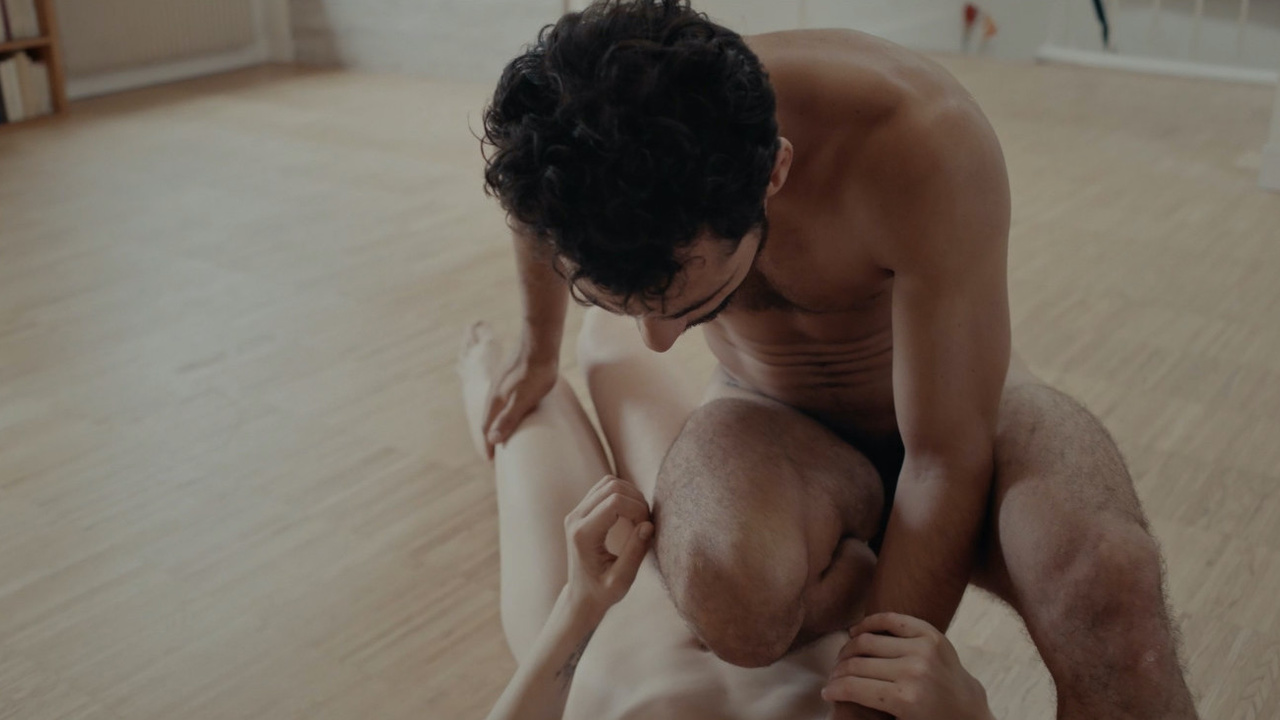A dazzling and frank dance musical (with, truth be told, very little memorable music), Boaz Yakin’s Aviva is an ambitious picture free from the restraints of traditional narrative–an ode to young urban living as young lovers Eden and Aviva settle down and settle into familiar gender roles. The question of gender roles is a loaded one, in fact. We’re told that Eden (played by Tyler Phillips as a man and Bobbi Jene Smith as a female) was intended to be a woman, played by a man, in a role written by a man. Eden’s lover, the luminous Aviva, is portrayed in female form by Zina Zinchenko and sometimes in the male form by Or Schraiber. The rules of the game–the movie within the movie–are explained as each character is introduced to us posing nude, in either a domestic or professional space, by the film’s female narrator. Confused yet? Aviva is as confounding as it is explicit, jumping back and forth in time, space, and form as the lovers go from dancing to fighting to having sex.
The 1990s were filled with countless New York indies by filmmakers like Ed Burns making relationship dramas about couples finding themselves in the city. Yakin’s career took him in a slightly different direction, directing indies Fresh and A Price Above Rubies before moving on to studio projects such as Remember the Titans, Uptown Girls, Safe, and Max. Free from the dull structure of a studio formula, in Aviva he has taken the indie intimate drama about articulate, attractive, and international city dwellers and subverted expectations.
Using dancers and actors (or as we’re told by a proxy for Eden, the production believed dancers would be more convincing actors rather than the other way around), Aviva is a rich, lyrical, and sexy picture about art, love, and identity, telling a potentially dull story in vivid and self-reflexive way. At a point, the film does grow somewhat tiresome as we try to keep up with who is embodying who between dance numbers. A female narrator proclaims her longing for Aviva, a strong independent presence who calls Eden out the first time they make love for not being present, but rather shooting a pornographic movie in his (or perhaps her) head.
The plot isn’t as complex as its form: Eden and Aviva have an online courtship, brought together by a mutual friend–she’s in Paris, he’s in New York, and both express themselves through dance. They connect spiritually and virtually as Aviva makes the leap across the Atlantic. As they hit roadblocks in their relationship when they start to know one another, the picture attempts to explain their past and present in loosely organized chapters. These include Eden’s “coming out” in the park as a child to Aviva’s parents, a miscarriage, and previous relationships that are complicated by national identity.
Largely told from Eden’s perspective as he/she grows content in the relationship, they move from an apartment to apartment, a process he/she isn’t terribly interested in. Eden then escapes backward into a dance number as a child that wouldn’t seem out of place in a classic afternoon special that was trying to channel the street creed of a film like Krush Groove. Yakin moves between modes, crafting what starts as an elegant, sophisticated city symphony of longing between New York and Paris, but turns into breaking Aviva and Eden’s life and relationships into distinct chapters of free-flowing dance numbers in bars, meeting halls, apartments, bedrooms, cities, and trains.
Explicit and spontaneous, Aviva is a film with several brilliant moments that sometimes loses its way in overly indulgent sequences and set pieces as it dares to chronicle nearly every intimate encounter its characters and many of their friends have over the course of about 40 years. While overly ambitious, Yakin imagines the private life your lover had before you with a sociological lens.
Aviva is now playing in Virtual Cinemas and is available exclusively on ROW8.com.

